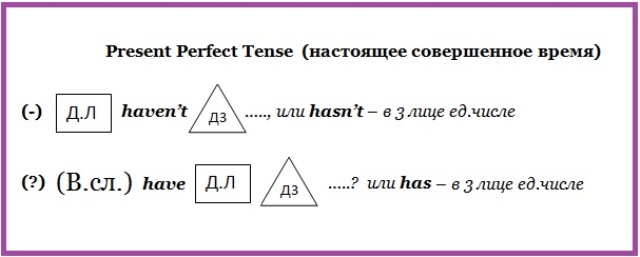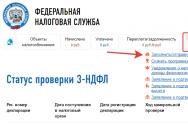Present perfect exercises на отработку навыка. Present Perfect Tense. Тренировочные упражнения. Advanced
Я рассказала о настоящем совершенном времени — Present Perfect Tense с трех точек (смысл, грамматический закон и маячки). Для развития разговорной речи и твердого запоминания маячков написаны шаблоны или модели предложений.
Если даже грамматические правила выучены и понят смысл времени Present Perfect, и даже маячки отработаны – это всего лишь 10% необходимой работы. Чтобы добиться полного автоматизма и безошибочного перевода (на английский язык) надо пройти этап “технических” упражнений. “Технические” упражнения – это упражнения на заданную тему, в одном грамматическом поле. Например, вам заранее говорят – все предложения в этих упражнениях – на Present Perfect. Можно для подсказки открыть лекции или учебник, можно задать вопросы учителю, если что-то затрудняет, можно делать и исправлять ошибки, можно заглядывать в ответы и проверять себя и т.д. Это напоминает тренировочный лагерь. Но это не реальная жизнь. В реальной жизни мы не говорим только на одном времени и чтобы говорить и писать на английском, читать и понимать английский, надо “смешивать” все разделы грамматики и времена, не путая их и ни разу не запинаясь. То есть нужна техника, значит отработка каждого раздела грамматики или времени до полной и окончательной победы. Мой стандарт = это 1000 предложений на каждый раздел, и это еще не предел. Из многолетней практики знаю, что только после пятисотого предложения ученик начинает прозревать, ну а после тысячного предложения он полностью готов.
Тренировочные упражнения делятся на три уровня (начальный, средний и продвинутый). Самый сложный уровень – это переводы на английский язык. Всегда начинаем с простого.
1.We have been to the Zoo this week.
2. They have already had dinner.
3. I have been very busy this week.
4. He has written down all these questions.
5. The pupils have just had a dictation.
6. Ann has done her homework yet.
7. We have seen a good film lately.
8. My granny has already taken the medicine.
9. She has lost her new pen lately.
10. My friends have moved to a new flat this month.
12. Our neighbours have bought a new car recently.
13. We have visited the exhibition of modern painting this week.
14. Peter has learnt the poem by heart yet.
15. I have already made tea for the guests.
16.Helen has told us many funny stories.
17. John has kept his promise.
18. I have read this book in the original.
19. The secretary has already typed the documents.
20. The doctor has just examined a patient.
21. The lecture has just begun.
22. I have seen three interesting film this week.
23. Father has just gone for a walk.
25. The alarm clock has already rung.
26. The boy has already passed all the exams.
27. I have already met him before.
28. He has already been late for his work.
29. The pupils have translated the text yet.
30. I have already met this man before.
31. He has just told me about this.
32. The doctor has examined a patient yet.
33. They have finished work yet.
34. My father has built a house.
35. Somebody has just knocked at the door.
36. He has travelled a lot recently.
37. I have already chosen a present for my son.
38. The children have already woken.
39. She has already found the book.
40. Mother has already cooked dinner.
После того, как вы изучили Present Perfect Tense (для начинающих) , переходим к упражнениям. 23 упражнения на отработку основных случаев помогут вам хорошенько запомнить, как строится это время, а также отработать основные подсказки для начинающих. В качестве наглядного материала, как всегда, будем пользоваться схемами из книги
Present Perfect Tense (упражнения для начинающих)
I. Утвердительные предложения в Present Perfect Tense
Д3 — это третья форма глагола.
Д3 = Д+ed (для правильных глаголов)
Д3 — искать в таблице неправильных глаголов (если глагол неправильный)
Упражнение 1. Выпишите в два столбика глаголы в третьей форме. В один столбик глаголы, образованные от правильных глаголов, в другой — от неправильных.
Had, met, written, done, cleaned, rained, seen, said, gone, sung, cut, happened, locked, made, lived, asked, liked, slept, told, fallen.
Упражнение 2. Напишите, что вы сделали.
ПРИМЕР.
Now the room is beautiful. — I have cleaned the room.
Теперь комната красивая. — Я убрался в комнате.
- Now the work is done. (Теперь работа сделана). —
- Now dinner is ready. (Обед готов.) —
- Now the door is locked. (Дверь заперта.) —
- Now the story is told. (История рассказана.) —
- Now the song is sung. (Песня спета.) —
Упражнение 3.
Составьте предложения с выражениями:
- go to bed — ложиться спать
- see a new film — посмотреть новый фильм
- clean the room — убрать комнату
- fall ill — заболеть
- write a poem — написать стихотворение

Упражнение 4. Вставьте глаголы в Present Perfect Tense.
- Helen _______________(ушла).
- My sister ____________ (заболела).
- My brother ____________(лег спать).
- Father ______________(запер) the door.
- Mother _________ (приготовила) the dinner.
Упражнение 5. Вспомните формы неправильных глаголов, напишите их и проверьте себя по таблице.
- write
- drink
Запомните:
- been to … — был в (но уже вернулся)
- gone to … — уехал в (еще не вернулся)
- She has been to Italy. (= Она была в Италии, но уже вернулась.)
- He has gone to Italy. (= Он уехал в Италию, но еще не вернулся.)
Упражнение 6.
Вставьте
been to/ gone to.
- Jim is on holiday. He’s ……….to France.
- Hello! I’ve just ……………….. to the shops. I’ve bought lots of things.
- Alice isn’t here at the moment. She’s…………to the shops to get a newspaper.
- Tom has ………out. He’ll be back in about an hour.
- Are you going to the bank? — No, I’ve already ……….to the bank.
Упражнение 7. Раскройте скобки и поставьте глаголы в Present Perfect.
- John (write) his name.
- I (draw) a picture.
- The cat (drink) its milk.
- The tree (fall) across the road.
- John (give) his bicycle to his brother.
- You (make) a mistake.
- We (eat) our dinner.
- The train (go).
- I (tell) the truth.
- She (buy) bread.
Упражнение 8.
Ответьте на вопросы утвердительно, употребляя глагол в Present Perfect.
ПРИМЕР. Are the rooms clean? (do) — Yes, Mother has done them.
1. Does she know the song? (learn)
2. Is breakfast ready? (cook)
3. Do you know how tasty the pie is? (eat)
4. Is she at home? (come)
5. Do you know the melody? (hear many times)
6. Can you speak on the subject? (read about it)
7. Is Ann on holiday? (go to Italy)
8. Are you ready with the report? (write it)
9. Can you do this work? (finish it)
Упражнение 9. Ответьте на вопросы, используя слово just — только что и слова, данные в скобках.
ПРИМЕР. Would you like to have something to eat?
(no/thank you/ I / just/ have dinner) — No, thank you. I have just had dinner.
- Have you seen John anywhere? (yes/ I/ just / see/ him)._____________________________
- Has Ann phoned yet? (yes/ she/ just/ phone)____________________________________
- Would you like to go for a walk? (no/ I/ just/ come home).___________________________
Упражнение 10.
Вставьте наречия never*, already*, just*
в нужное место каждого предложения (согласно схеме) и переведите их.
ПРИМЕР. Jack has washed the dog. —
- Jack has never washed his dog.
- Jack has already washed his dog.
- Jack has just washed his dog.
* * *
Упражнение 11. Ответьте, используя слова already* — уже, just* — только что.
ПРИМЕР. Will you make some sandwiches, please? — But I have already made them.
1. Do the flat, will you? 2. Why don’t you sweep the floor, please? 3. Please, give Peter this dictionary. 4. Will you send a telegram to Mary, please? 5. Write them a letter, please! 6. Don’t forget to phone Mother. 7. Will you show the children your new books, please? 8. Make fresh tea, please! 9. Bring, some more bread from the kitchen, please! 10. Will you wash up the dishes, please!
Упражнение 12.
Сделайте данные предложения отрицательными, используя слово never.
Наречие never* — никогда ставится только в утвердительное предложение.
- Jack has washed the dog.
- Father has cleaned his car.
- Granny has bought me some clothes.
- They have painted their old house.
- My sister has cooked breakfast for the family.
II. Отрицательные и вопросительные предложения в Present Perfect Tense

Упражнение 13. Сделайте предложения отрицательными.
- The cat has eaten fish. 2. I have been to India. 3. She has broken the vase. 4. The train has arrived. 5. It has started to rain. 6. We have left our textbooks at school. 7. The city has changed a lot. 8. You have worked here for a long time. 9. I have slept well. 10. They have gone to bed.
Упражнение 14. Напишите, что еще не сделали это.
ПРИМЕР. I am still doing my homework. — I haven’t done my homework yet.
1. I am still translating the text. —
2. I am still writing the exercise. —
3. I am still cleaning my room. —
4. He is still reading the story. —
5. He is still washing his bike. —
6. They are still discussing the book. —
7. They are still having lunch. —
8. We are still having breakfast. —
9. She is still making sandwiches. —
10. She is still answering the questions.
Упражнение 15.
Составьте предложения с данными словосочетаниями о том, что уже сделано
и что еще не сделано.
- drink coffee
- take the dog for a walk.
- clean the floor
- do the shopping
- wash the dishes
- have breakfast
- water the plants
- cook dinner
- do lessons
- paint the walls
- Already done (уже сделано): I have already drunk coffee.
- Not done yet (еще не сделано): I haven’t taken the dog for a walk yet.
Запомните выражение. Not yet. — Еще нет.
Упражнение 16.
Ответьте на вопросы утвердительно или отрицательно в краткой форме.
ПРИМЕР. Have you been to Sochi? — Yes, I have. (No, I haven’t)
- Have you read «Harry Potter»? —
- Has your friend been to a football match? —
- Have they visited History Museum this year? —
- Have you already learn to swim? —
- Has your father had a car accident?
Упражнение 17. Составьте вопросы по образцу, используя данные слова.
ПРИМЕР. (you ever / be / to Italy) – Have you ever been to Italy?
- You / ever/ be / to South America?
- You / read / any English books?
- You /live/ in this house all your life?
- How many times / you/ be / in love?
- What’s / the most beautiful country / you/ ever / visit?
- You ever/ speak / to a famous person?
Упражнение 18.
Задайте вопрос к предложению и ответьте на него отрицательно.
ПРИМЕР. I have seen this film. — Have you seen this film? — I haven’t seen this film.
- The bus has turned to the right. —
- She has put on my scarf. —
- We have been here many times. —
Упражнение 18.1.
Задайте вопрос к предложению и ответьте на него отрицательно, используя парные наречия ever (когда-нибудь)
— never (никогда)
ПРИМЕР. I have seen this film. — Have you ever seen this film? — I have never seen this film.
- I have written my friend a letter. —
- The boy has ridden a horse. —
- She has put on my scarf. —
- The girls have washed all the plates. —
- We have been here. —
Упражнение 19. Задайте вопросы к предложениям.
- I have read the evening newspaper. — What…..
- She has brought five cups. — How many…
- The daughter has dusted the sideboard. — Who….
- You have helped me very much. — How….
- We have finished our work. — What ….
- Father has gone to work. — Where ….. to?
Упражнение 20 . Спросите по-английски, используя Present Perfect Tense
- ссорится — quarrel
- болеть гриппом — had a flu
- present flowers — дарить цветы
- пробовать авокадо — taste avocado
- влюбляться — fall in love
1. Вы когда-нибудь были в Лондоне? 2. Он когда-нибудь рассказывал вам о своей жене? 3. Они когда-нибудь ссорились ? 4. Вы когда-нибудь болели гриппом ? 5. Он когда-нибудь дарил вам цветы ? 6. Вы когда-нибудь летали на самолете?: 7. Вы когда-нибудь видели такую красивую девушку? 8. Вы когда-нибудь учили французский? 9. Вы когда-нибудь пробовали авокадо ? 10. Вы были влюблены когда-нибудь?
Present Perfect Tense. Упражнения на все виды предложений
Упражнение 21. Поставьте глаголы в скобках в Present Perfect Tense.
1. He (not answer) my letter yet.
2. You ever (eat) caviar?
3. She recently (become) a student.
4. They (travel) all over the world.
5. How long you (be) here?
6. I saw her in May but I (not see) her this month.
7. My friend (buy) a new car.
8. I (lose) my gloves.
9. I never (ride) a camel.
10. They never (behave) like this before.
Упражнение 22.
Вставьте already, ever, yet, just
в предложения.
1. Have you … been to Africa? 2. Have you finished writing your essay? — I haven’t finished it …. 3. Shall I pay the waiter? — No, I’ve … paid the bill. 4. Have you .. spoken to a famous person? 5. Ann, lay the table. I’ve … cooked dinner. 6. They don’t know what the problem is. They have … arrived. 7. Is it a good film? — Yes, it’s the best I have … seen. 8.The letter hasn’t come … . 9. She has … explained the situation to me. 10. He hasn’t invited me to the party … . 11. Nobody has found the lost dog ….
Упражнение 23. Скажите это по-английски.
- Моя сестра умеет читать. Она уже прочла две книги.
- Ты уже сделал эту работу?
- Он уже ушел.
- Где Виктор? – Я его еще не видел. Я только что пришел домой.
- Ты уже выводил собаку на прогулку (take out)? – Еще нет.
- Я никогда еще не видел такой (such) большой собаки.
1.Вы пишите письмо другу. В нём Вы рассказываете о новостях про себя и других людей, которые произошли за последнее время. С помощью данных слов составьте предложения. Все предложения в Present Perfect.
Dear friend,
Lots of things have happened since I wrote to you last.
1. I / buy / a new car –I have bought a new car.
2. My father / start / a new job. _______________.
3. I / give up / smoking. _______________.
4. Charles and Sarah / go / to Brazil. _______________.
5. Suzanne / have / a baby. _______________.
2. Все предложения в Present Perfect.
1. She / do / many different jobs. – She has done many different jobs.
2.He / travel / to many places. She _______________
3. We / do / a lot of interesting things. ___________
4. I / write / ten books. _______________
5. They / meet / a lot of interesting people. ________
6. You / be / married five times. ______________
3. Вставьте have/has + один из следующих глаголов в третьей форме в пропущенные в предложениях места.
Break, buy, finish, do, go, go, lose, paint, read, take
"Are they still having dinner?” "No, they have finished.”
I _____________ some new shoes. Do you want to see them?
"Is Tom here?” "No, he _____________ to work.”
"__________ you __________ the shopping” "No, I’m going to do it later.”
"Where’s your key?” "I don’t know. I _____________ it.”
Look! Somebody _____________ that window.
Your house looks different. __________ you __________ it?
I can’t find my umbrella. Somebody _____________ it.
I’m looking for Sarah. Where __________ she __________?
"Do you want the newspaper?” "No, thanks. I _____________ it.”
4. Вы задаёте своему другу вопросы. С помощью следующих слов составьте вопросы, которые будут начинаться словами Have you ever …?
(to be / to Paris?) Have you ever been to Paris?
(play / golf?) Have you ever played golf?
(to be / to Australia?) _______________?
(lose / your passport?) _______________?
(sleep / in the park?) _______________?
(eat / Chinese food?) _______________?
(to be / to New York?) _______________?
(win / a lot of money?) _______________?
(break / your leg?) _______________?
(run / a marathon?) _______________?
(speak / to famous people?) _______________?
(live / in another town) _______________?
5. Заполните пропущенные в предложениях места по примерам.
1. Jill is in London. She has been in London since Monday.
2. I know George. I have known him for a long time.
3. They are married. They _______________ married since 1983.
4. Brian is ill. He _______________ ill for a week.
5. We live in this house. We _______________ here for ten years.
6. I know Tom very well. I _______________ him for a long time already.
7. We are waiting for you. We _______________ waiting since 11 o’clock.
8. Alice works in a bank. She _______________ in a bank for 5 years.
9. I’m learning English. I _______________ learning English for six months.
10. She has a headache. She _______________ a headache since she got up.
6. Заполните пропущенные в предложениях места словами в скобках.
1. "Would you like something to eat?” "No, thanks. I have just had lunch.” (just/have)
2. "Do you know where Julia is?” "Yes, I _____________ her.” (just/see)
3. "What time is David leaving?” "He _____________.” (already/left)
4. "What’s in the newspaper today” "I don’t know. I _____________.” (not/read/yet)
5. "Is Ann coming to the cinema with us tonight?” "No, she _____________ the film” (already/see)
6. "Are your friends here yet?” "Yes, they _____________.” (just/arrive)
7. "What does Tim think about your plan?” "I _____________.” (not/tell/yet)
7. Прочтите ситуации и напишите вопросы с помощью слов в скобках.
1. John tells you, that his mother is in hospital. You ask him:
(How long / be / in hospital?) How long has your mother been in hospital?
2. You meet a woman who tells you that she teaches English. You ask her:
(How long / teach English?) _________________________?
3. You know that Jane is a good Carol’s friend. You ask Jane:
(How long / know / Carol?) _________________________?
4. Your friend’s brother went to Australia some time ago and he’s still there. You ask your friend: (How long / be / in Australia?) ____________________________?
5. Tim always wears the same jacket. It’s a very old jacket. You ask him:
(How long / have / that jacket?) ____________________________?
6. You are talking to a friend about Alan. Alan now works at the airport. You ask your friend:
(How long / work / at the airport?) _______________________________?
— одно из времен английского глагола, с которым у начинающих возникают трудности, так как у него нет прямого аналога в русском языке. Упражнения на Present Perfect помогут вам разобраться в тонкостях его употребления, лучше их запомнить. Если вы не знакомы с этой темой, рекомендую сначала прочитать: .
Упражнение 1: Present Perfect в утвердительной форме
Повторите употребление Present Perfect в утвердительной форме. Обращайте внимание на .
Показать ответы с переводом:
1. I have finished the exercise (to finish). — Я уже закончил упражнение.
2. We are tired. We have written two essays in a row (to write). — Мы устали. Мы написали два эссе подряд.
3. Ellen has known me for three years (to know). — Эллен знает меня три года.
4. You have lost all your savings (to lose). — Ты потерял все свои сбережения.
5. She has lived in Nebraska for five years (to live). — Она прожила в Небраске три года.
6. Julia and her parents have arleady moved to another town (to move). — Джулия и ее родители уже переехали в другой город.
7. I have fixed your bike. You can ride it (to fix). — Я починил твой велосипед. Можешь кататься на нем.
8. It has been a year since we moved (to be). — Прошел год с тех пор, как мы переехали.
9. Dad has already picked me up from the school, mom (to pick up) — Папа уже забрал меня из школы, мама.
10. He has already been here before (to be). — Он уже был здесь раньше.
Упражнение 2: Present Perfect в отрицательной форме
В этом упражнении вам нужно образовать Present Perfect в отрицательной форме, раскрыв скобки.
Показать ответы с переводом:
1. I can’t go. I have not cleaned my jacket. — Я не могу идти. Я не почистил свой пиджак.
2. They have not opened your letter yet. — Они еще не открыли твое письмо.
3. She has not visited her husband since April. — Она не навещала своего мужа с апреля.
4. Bob and Jack have not taken a day off for a month. — Боб и Джек месяц не брали выходной.
5. He has not been here before. — Он не был здесь раньше.
6. We have not touched anything on the crime scene, detective. — Мы ничего не трогали на месте преступления, детектив.
7. Anna doesn’t know if she is off tomorrow. She has not read her schedule. — Анна не знает выходной ли у нее завтра. Она не прочитала свой график работы.
8. The boy has not washed his hands. They are dirty. — Мальчик не вымыл руки. Они грязные.
9. We have not ever seen snow. It’s amazing. — Мы никогда не видели снег. Он потрясающий.
Упражнение 3: Present Perfect в вопросительной форме
Повторите употребление Present Perfect в вопросительной форме с помощью этого упражнения.
Показать ответы с переводом:
1. Have you ever eaten shrimps? — Вы когда-нибудь ели креветки?
2. Has your sister watched ‘Titanic’? — Твоя сестра смотрела «Титаник»?
3. Have those sparrows already seen the cat? — Эти воробьи уже заметили кошку?
4. What have the kids found in the old mansion? — Что нашли дети в старом особняке?
5. Who has broken the window? — Кто разбил окно?
6. Where have Allen and Nina spent their honeymoon? — Где Аллен и Нина провели свой медовый месяц?
Упражнение 4: For или Since?
Одна из трудностей Present Perfect — употребление for и since . Выберите правильный вариант, опираясь на контекст.
Показать ответы с переводом:
1. I haven’t been to Vice City for two years. — Я не был в Вайс-Сити два года.
2. John has lived in Japan since 2015. — Джон живет в Японии с 2015 года.
3. You have been unconcious for a long time. — Ты был без сознания долгое время.
4. Liza hasn’t written since Christmas. — Лиза не пишет с Рождества.
5. We have had sunny weather since Monday. — У нас солнечная погода с понедельника.
6. I haven’t played guitar for ages. — Я уже сто лет не играл на гитаре.
Упражнение 5: Present Perfect во всех формах
В этом упражнении вы закрепите употребление Present Perfect в утвердительной, отрицательной и вопросительной формах.
Показать ответы с переводом:
1. I have never seen an elephant (to see). — Я никогда не видел слона.
2. Has Diana forgiven her husband? (to forgive) — Диана простила своего мужа?
3. Cats have scratched his palm (to scratch) — Кошки поцарапали его ладонь.
4. What have we decided ? (to decide). — Что мы решили?
5. Have you ever been to Russia? (to be) — Вы когда-нибудь были в России?
6. How has the boy survived in the jungle? (to survive) — Как мальчик выжил в джунглях?
7. They have almost won (to win). — Они почти победили.
Упражнение 6: Найдите ошибки в тексте
В этом коротком тексте намеренно допущено несколько ошибок. Выделите слова с ошибками и нажмите «Проверить».
Показать ответы с переводом.








